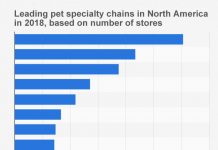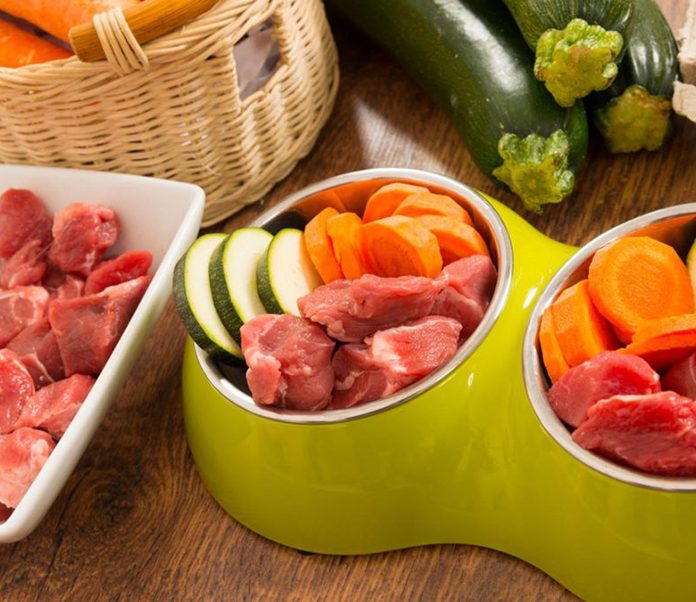As a pet parent, you want to give your cat or dog the best, especially when it comes to nutrition. It comes as no surprise, then, that a growing number of pet owners are shopping for cat and dog food recipes made with the highest quality ingredients. Many pet parents are also asking about buying ingredients themselves to prepare homemade and raw diets (including raw meat) for dogs and cats.
But are homemade and raw diets safe for cats and dogs to eat?
Learn more about feeding cats and dogs homemade and raw diets, including the risks and common myths.
Can I Feed My Pet Homemade Food?
Common Issues
You prepare meals for you and your family with the ingredients you buy from the grocery store. Can you do the same for your pets? There’s an increasingly popular belief that homemade pet food is more natural, and therefore healthier, than traditional cat and dog food recipes. However, homemade pet food often fails to provide essential nutrients for cats and dogs.
Some common nutrition errors found in homemade cat or dog food include:
- Too much protein
- Not enough calories, calcium, vitamins and micro-minerals
- Unbalanced calcium to phosphate ratios
- Low energy density
Special Circumstances
Sometimes veterinarians will recommend a home-cooked meal for pets with certain medical conditions, such as chronic pancreatitis or chronic kidney disease. In special circumstances like these, cat and dog owners should work closely with their veterinarian to ensure that the homemade diet fulfills their pet’s nutritional requirements. It’s also recommended that pet owners consult a board-certified Veterinary Nutritionist to make sure the formula is prepared using the right ingredients.
In addition to nutrient deficiencies, homemade dog and cat food made with raw meat and animal bones can potentially cause illness in pets. Some illnesses, such as Salmonella, can even be transferred from dogs and cats to people.
Can I Feed My Cat or Dog Raw Meat?
Risks of Eating Raw Meat and Bones
Would you eat raw meat or eggs? Chances are, you steer clear of uncooked or undercooked meat and eggs because you know it can make you sick. Raw meats and eggs can contain harmful bacteria, viruses and parasites, and if not prepared properly, they can cause serious illness in both pets and people.
SALMONELLA INFECTION
Salmonella is a bacterial infection that is often transmitted through contaminated food. It’s also one of the most common disease risks from consuming raw meat. In fact, 20-30 percent of raw poultry carcasses test positive for Salmonella. Common symptoms of a Salmonella infection include diarrhea, vomiting, fever, abdominal pain and lethargy.
Warning: Dogs can carry Salmonella without showing any symptoms.
Salmonella is also a zoonotic disease (meaning it can be transmitted from pets to people), so it’s critical that infected cats and dogs be isolated from other animals and family members. Children, the elderly, cancer and AIDS patients, and those with chronic diseases or compromised immune systems are at a greater risk of becoming infected.
OTHER MEDICAL CONDITIONS
Salmonella isn’t the only bacteria found in raw meat and bones. Clostridium, Campylobacter and other bacteria are also present in uncooked or undercooked meat. These can cause serious medical conditions, including:
- Gastroenteritis: This is inflammation of the gastrointestinal tract, usually the stomach and intestines. In addition to abdominal pain, gastroenteritis in dogs and cats can cause vomiting, diarrhea and dehydration.
- Enterotoxins: These are protein toxins released by microorganisms in the intestines. They can cause multiple organ failure and lead to death.
DAMAGE CAUSED BY INGESTING BONES
Giving pets meat that’s still on the bone might seem like a tasty treat. After all, dogs like to chew on bones. But chewing on bones and eating bones can cause physical damage to dogs and cats.
- Bones can fracture dogs and cats’ teeth, which is painful and affects overall oral health
- Ingesting bones can lead to blockages or tears in the esophagus, stomach or intestine
- Sometimes, dogs and cats that eat bones might require surgery to have the bone removed
Consult Your Veterinarian
Nutrition plays a large role in our pets’ overall health and wellness. It’s important to talk with your veterinarian about getting your cat or dog the nutrients they need from their food, especially if you’re considering a homemade diet or homemade pet food made with raw meat.
| Picture | Name | Price | Description |
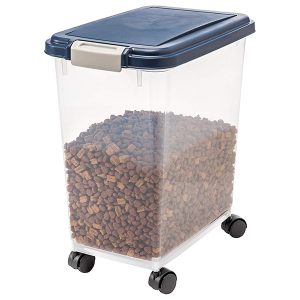 |
IRIS Airtight Food Storage Container | $22.39 | More |
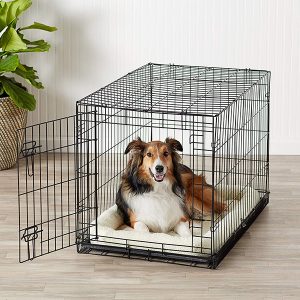 |
Single Door & Double Door Folding Metal Dog Crate | $39.99 | More |
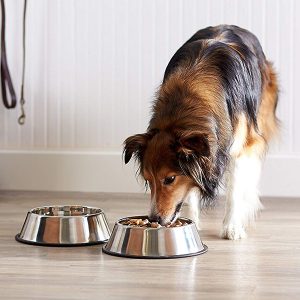 |
Dog Bowl | More | |
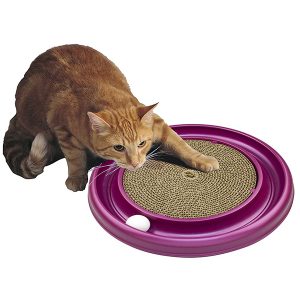 |
Cat Toy | $7.87 | More |
 |
Pet Bolster Bed | $11.00 | More |
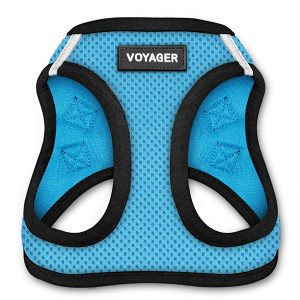 |
Voyager All Weather No Pull Step-in Mesh Dog Harness Padded Vest | More |











